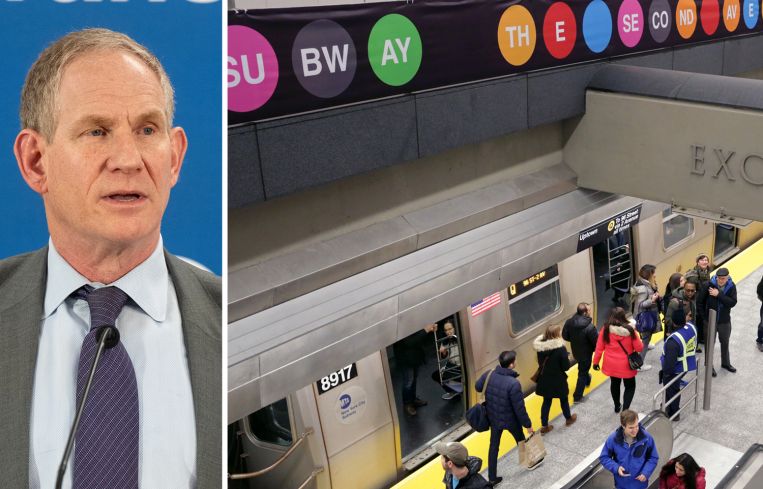MTA Blames Harlem Landlords for Second Avenue Subway Project Delays
By Isabelle Durso August 27, 2024 3:55 pm
reprints
The Metropolitan Transportation Authority’s long-delayed extension of the Second Avenue Subway has hit more slowdowns in Harlem, this time thanks to two landlords.
In papers filed in New York Supreme Court last week, the MTA accused the owners of three Harlem apartment buildings — Croman Realty’s 2100 Second Avenue and The Drivin Group’s 2146 and 2148 Second Avenue — of preventing construction crews from working on the extension of the Q subway line from East 96th to East 125th streets.
After those landlords allegedly refused to allow crews inside their properties to reinforce the buildings ahead of the underground work, the MTA said it was forced to file the lawsuits as risk of “costly delays” grew, according to the filings, first reported by Crain’s New York Business.
“The MTA is committed to delivering the Second Avenue Subway project that will provide transformative benefits for the East Harlem community,” MTA spokesperson Kayla Shults said in a statement to Commercial Observer. “Legal action to obtain access for critical surveying and structural work are considered only as a last resort when property owners are unresponsive.”
Steve Croman, who owns 2100 Second Avenue, and Max Drivin, who owns 2146 and 2148 Second Avenue, did not immediately respond to requests for comment. Croman isn’t a stranger to the court system: The landlord was convicted of fraud for overcharging his tenants and violating state rent laws and spent months behind bars, CO previously reported.
The MTA wrote in its filings last week that the Harlem landlords had prevented officials from “performing the necessary work to progress this much-needed addition to the MTA Second Avenue Subway line” and “divert[ed] funds from other important MTA public improvement projects.”
The authority also said it made “several attempts” since May 2023 to contact the landlords to “hold reasonable discussions regarding access” to the premises, but they “ceased communications” in April, forcing the agency to take action.
Unresponsive landlords aren’t the only recent delays to the Second Avenue Subway project. In June, the MTA had to briefly pause the subway extension when Gov. Kathy Hochul postponed congestion pricing at the zero hour and, subsequently, the $15 billion in dedicated funding for mass transit projects such as the subway extension.
A major source of funding for the project was supposed to be the $15 charge for most motorists entering certain parts of Manhattan that was scheduled to begin June 30.
In an effort to make up for her highly criticized decision, Hochul handed the MTA $54 million in July to keep the subway extension on schedule for completion, but that only covered the cost of one contract — relocating utility lines along the corridor — in the $182 million project, CO previously reported.
And now the project may be even more delayed as landlords prevent progress and potentially cost the MTA “thousands of dollars per day,” Shults told CO.
The subway extension was initially slated for completion between 2030 and 2039.
Isabelle Durso can be reached at idurso@commercialobserver.com.



